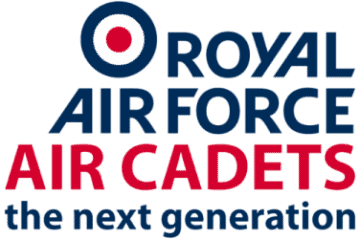He may have wanted to take another path away from the church, but one watershed conversation brought our Chaplain-in-Chief & Archdeacon for the RAF, The Venerable Dr (Air Vice-Marshal) Giles Legood back into the service of others. Was it fate or destiny? I caught up with our buoyant padre to find out more.
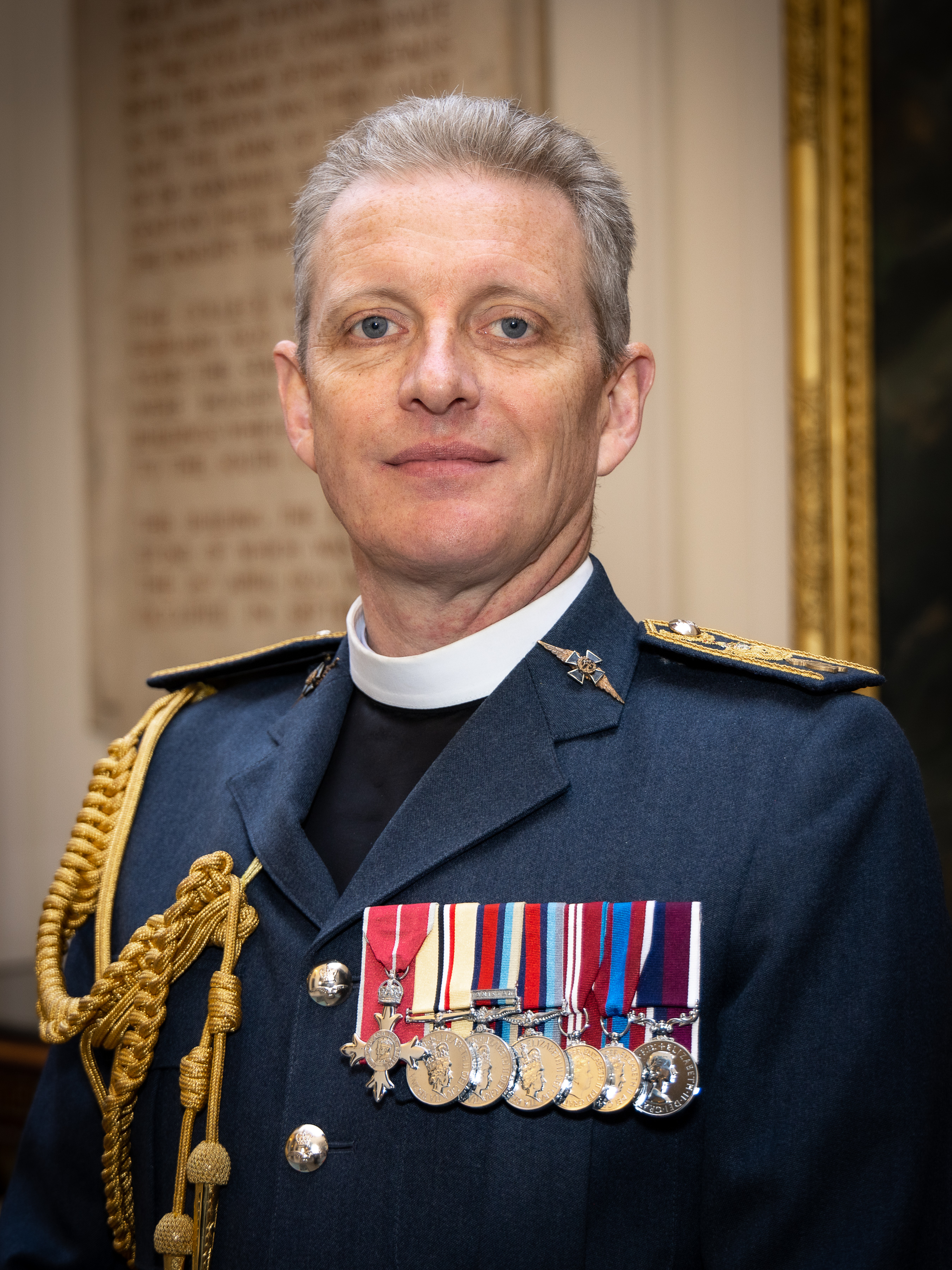
When we meet the chief is in jovial form. The eyes of numerous past Chaplains-in-Chief gaze down on us from the portraits that adorn his comfortable office – a emblem of the importance of religion in the RAF since World War One. Brenda, his indomitable PA serves us tea – “Brenda is the real boss here. She keeps me sane,” said the chief, taking a biscuit and tipping a mischievous wink. It is clear that they make a good team. It is a warm day, the clerical collar is loosened, and conversation starts to flow.
The chief was the first in his family to take the cloth. As a boy he had attended the local church and sang in the choir whilst growing up in Maidstone, Kent before he took Religious Studies at A Level, leading to Divinity at King’s College, London. “If the family were surprised, they never showed it. It didn't seem unnatural,” he said.
Many have a strong sense of calling that guides them to the church. Not so Giles Legood. “It wasn't a calling in the sense of a light bulb moment. It was more of a nudging towards it being the right thing to do. It can come through other people making suggestions or reinforcing what you were thinking as much as a bolt from the sky. Someone at university asked if I had ever thought about turning my collar round the other way. I hadn’t but when they had said it, it made perfect sense.” The irony was that the very same person who suggested it later took up the chaplaincy in the RAF!
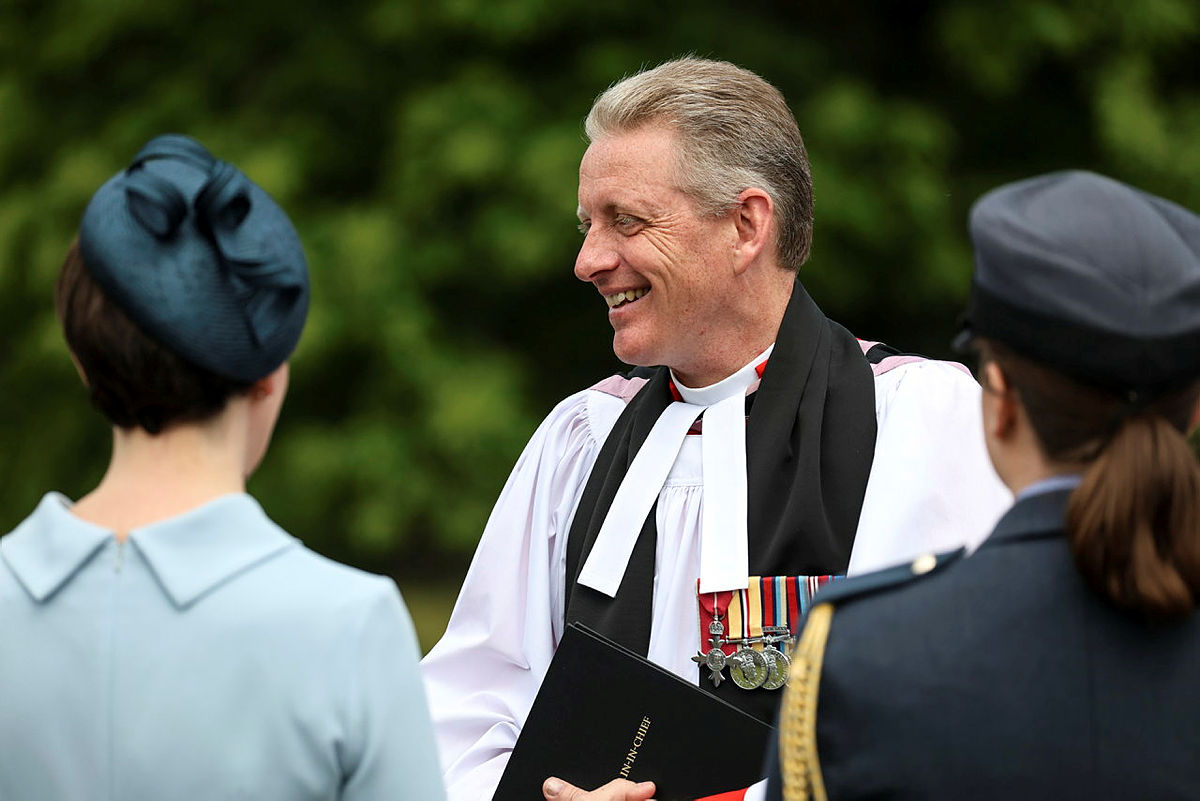
However, for The Venerable Dr the path to a career in the church was not so straightforward. He left his university course after his interest waned – “It wasn’t for me, and the church wasn’t for me. I wasn’t angry about it.” He later secured a post at St Paul’s Cathedral in London, for two years, as a tour guide and verger – believing it to be an interesting role rather than for any religious affiliation. With the Old Bailey round the corner, many would come into the cathedral to await their court time, including one lady who was due to testify in her rape trial. A chance encounter with her began a conversation that would last for four hours and change his life.
“I started to think that I could do this after all. This could be the right thing to me for me. It was really a confirmation or a nudge that it does make sense and I felt that I was quite good at doing that. I felt it was something I could be suited for,” reflected the chief.
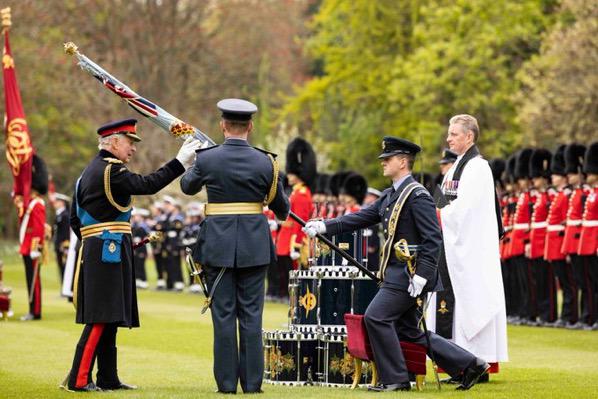
And so began the road back to ordination. Life as a civilian clergyman for fifteen years followed including periods at the University of London and local parishes. By the age of forty he had been an RAF Reservist for four years (he joined the Royal Auxiliary Air Force’s 600 Sqn in 2004 as the first ever RAF reservist chaplain) and sensed a need for change. For the last sixteen years he has been a regular and never looked back, relishing his time in the Service.
“If I didn’t enjoy it, I would probably be doing a bad job.”
So, what is the most enjoyable part of his current role?
“It’s the diversity of people. I have the chance to have conversations with senior people who can really affect change. I enjoyed being a station chaplain, and now it’s the same sort of experience – just on a different level,” said the chief, candidly.
And the least enjoyable?
“Hearing the frustrations of service personnel. It is often due to lack of resources that a person has not been able to thrive in the way that we’d hoped.”
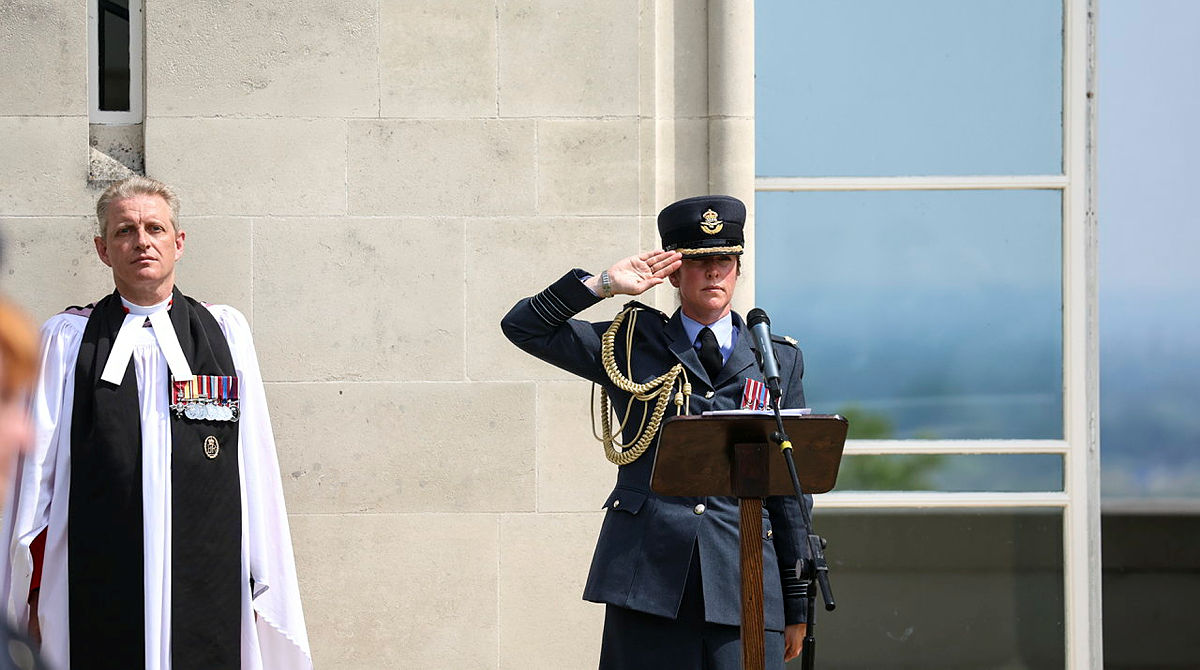
Taking a service in the calm sanctity of a church, robed and preaching the gospel is a common perception for many when they think of the clergy. But for those chaplains in service the reality is very different. Many attend war zones, standing shoulder to shoulder and enduring the same harsh conditions as other service personnel. The chief cites his toughest assignment to date – and the most rewarding - as his three-month tour at the Camp Bastion hospital, Afghanistan in 2013. The days were often brutal, where he witnessed death and life changing injuries on a daily basis. “It was challenging for me, but I really loved being part of that team because everyone was working long hours seven days a week clearly making a difference and it was also one of the most fulfilling. If you ask me tomorrow if I would go and do it all again, I would bite your hand off.“
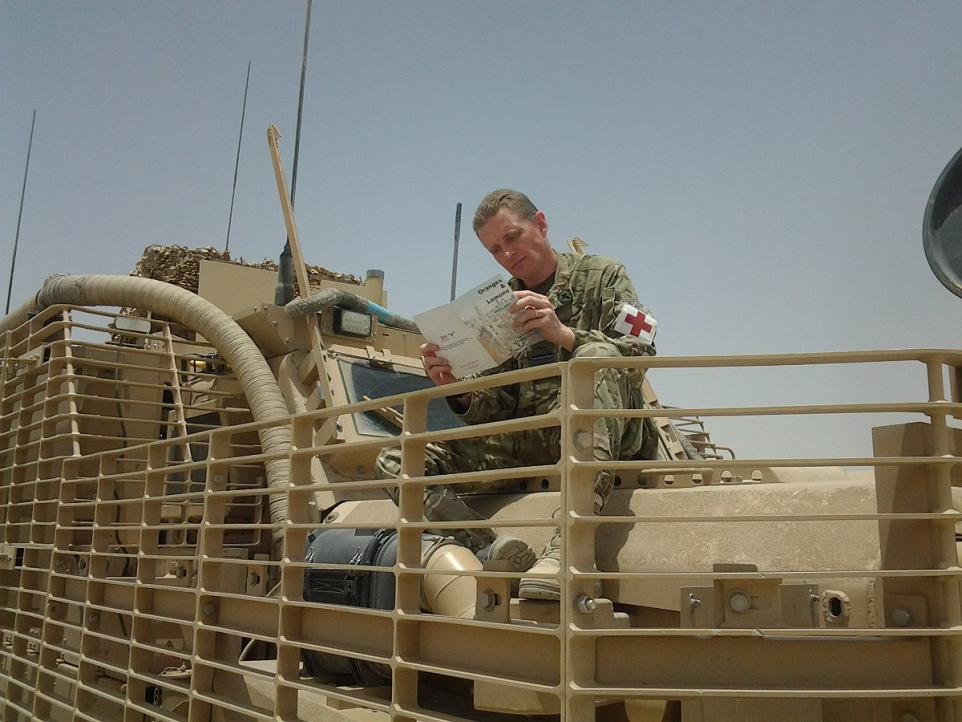
“Very often you are a sponge who soaks things up. People come to talk about a faith or non-faith matter. None of us have a magic wand. All you can do is listen, be empathetic, question them and make suggestions rather than giving them answers.”
In his quieter moments whilst on tour the chief often felt apprehensive. “You have to be in tune with your emotions and act accordingly. If you weren’t scared you would be a fool really,” commented the chief. Although a chaplain is often visited upon for their wisdom and advice, I was impressed by the padre’s fallibility and the fact that he too is only human; “I remember my first night in Iraq and someone was going out on patrol, and he came to talk to me about being frightened. I thought ‘you're not the only one.’ I didn't tell him that, but I felt the same way. If you show some vulnerability as well, I think service people react to that.”
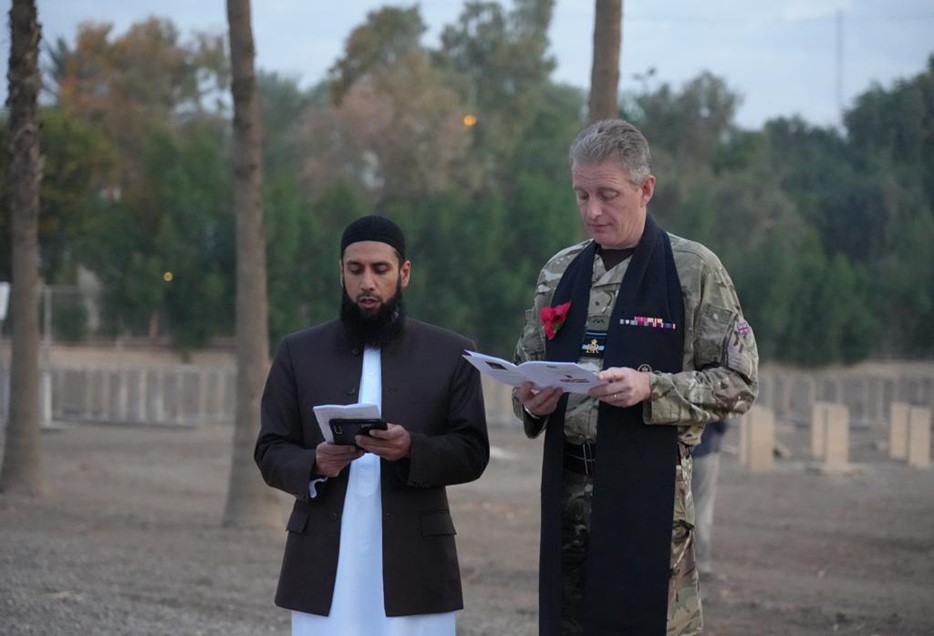
War regularly welcomes death and destruction. So how does a chaplain reconcile his peace-loving beliefs with a warzone and all its associated brutality?
“War is always a failure. A failure of human communication. But I'm not a pacifist. I think the church and Christians should be involved in the dark and dirty places in the world as well as the great places. I reconcile it by thinking warfare is ugly, but we can do it in a reasonable way using a minimum amount of force and being compassionate. Sometimes war is necessary. In Afghanistan it was sadly necessary.”
The relationship that many chaplains have with their faith can alter over the years for any number of reasons. Is the chief’s faith still as strong as when he was first ordained? “In the thirty-one years since ordination I would say it was different. I would be surprised if it didn't change. People develop and mature in all different sorts of ways and life experiences must affect that. In terms of questioning your faith, I think there are always peaks and troughs," said the padre in a reflective tone.
In terms of his main wish for the future of the church, The Venerable Dr is resolute; for it to be more gentle and less judgemental. The ordination of females into the clergy and recognition of same sex unions “is all for the good. But it is on a journey,” added the chief.
Free time for the busy chief may be in short supply, but he still retains links with his old alma mater, King’s College where he has devoted twenty years to their numerous charities, as well as being vice-chair of their Research & Ethics Committee. In May he was appointed a Fellow for his services.
Honours have peppered the padre’s life, including an MBE in 2014 for his spiritual help to numerous units during his tour of Afghanistan – the first honour given to a serving chaplain since the Second World War. “I had no idea it was coming. So much of the chaplain’s work is hidden and private, so it is nice to be publicly recognised. I see it as an award for chaplains in general,” said the chief, humbly.

For the man who counts listening to the radio on his drive home as his method to shed the stresses of the day, and being surrounded by normal, suburban people to keep him grounded, his ambitions for the future are simple; to be happy, healthy and a good husband and father.
“Always be approachable whether a young or senior chaplain, always be approachable.”
Although he may dispense advice, what is the best tip he has been given? “A clergyman told me to never handle the same piece of paper twice. If you have a request and you have five minutes, then get it done. Not only are you lightning your in-tray, but you are also helping the requestor. You are being pastoral to them. You are being a good colleague and I feel I'm being a good chaplain in turning it around quickly so never handle the same piece of paper twice. And I do try and stick to that.”
For the young chaplain, fresh to the RAF, what advice would stand them in good stead? “Say your prayers, work hard, turn up to things and hopefully you will be effective. You really must try and enjoy it. I pray every day,” replied the chief.
“I often crack a smile or a joke. I hope so or I've got things badly wrong. You can't be too serious, sometimes it depends on the situation. You always have to have a sense of proportion.”
There is something innately calming about The Venerable Dr Giles Legood. He has reached the top of his profession with no sense of ego or self-importance. Being the chaplain-in-chief was never the end goal. He may say that like life, it just happened. But he is where he is not by accident, but by being a fundamentally decent man. Equally content being a station chaplain, he will happily revert to being a vicar at a local parish when his tenure as the chief ends in four years’ time – maybe even singing in the choir as he once did as a boy back in Kent. In war he has witnessed more than any man should and seen lives irrevocably change. This could scar many, but what the padre exudes is hope – an overwhelming sense that there is good in the world if you take the time to find it.
My appointment with the chief has come to an end. So, was it fate or destiny that the good padre’s life was steered back to the church? Talking to the man I would argue destiny. With his mixture of patience, understanding and fortitude his cassock, like the role of chaplain-in-chief sits comfortably on his shoulders.
I leave his office more enriched than I ever imagined. Affable, down-to-earth and honest, he makes you feel important. What a gift.

